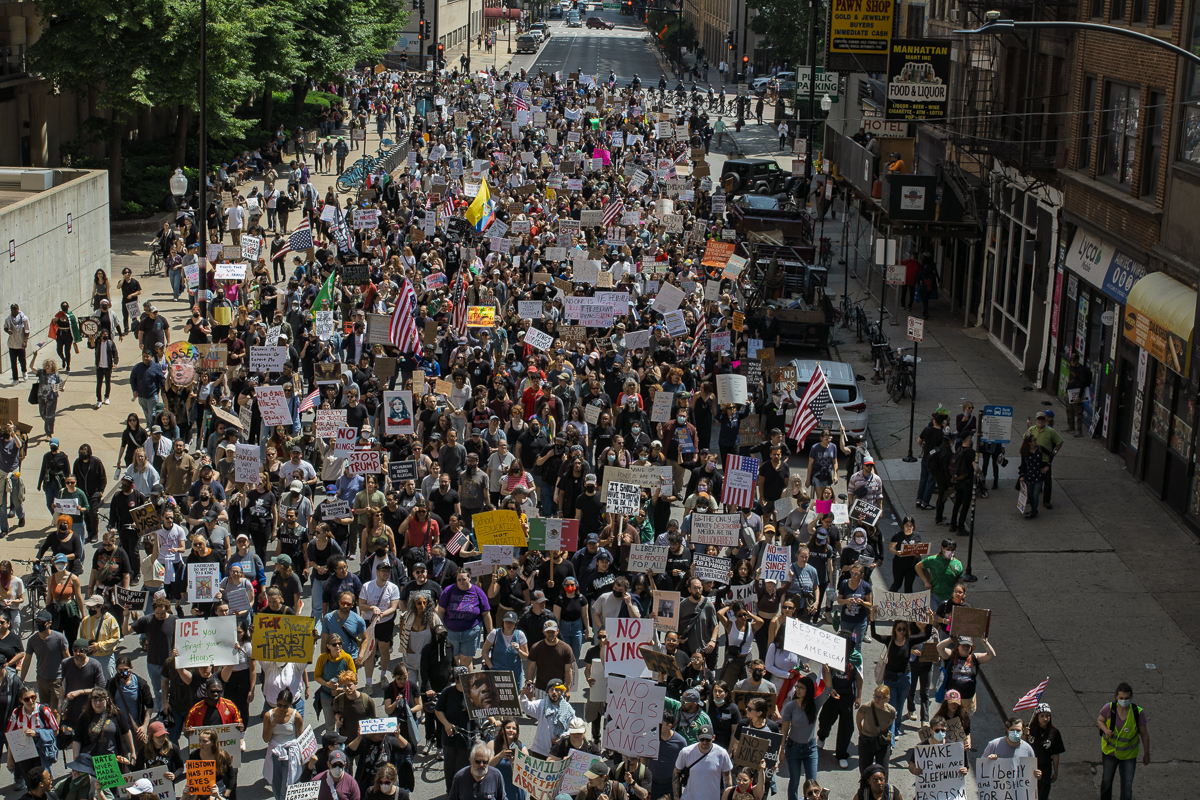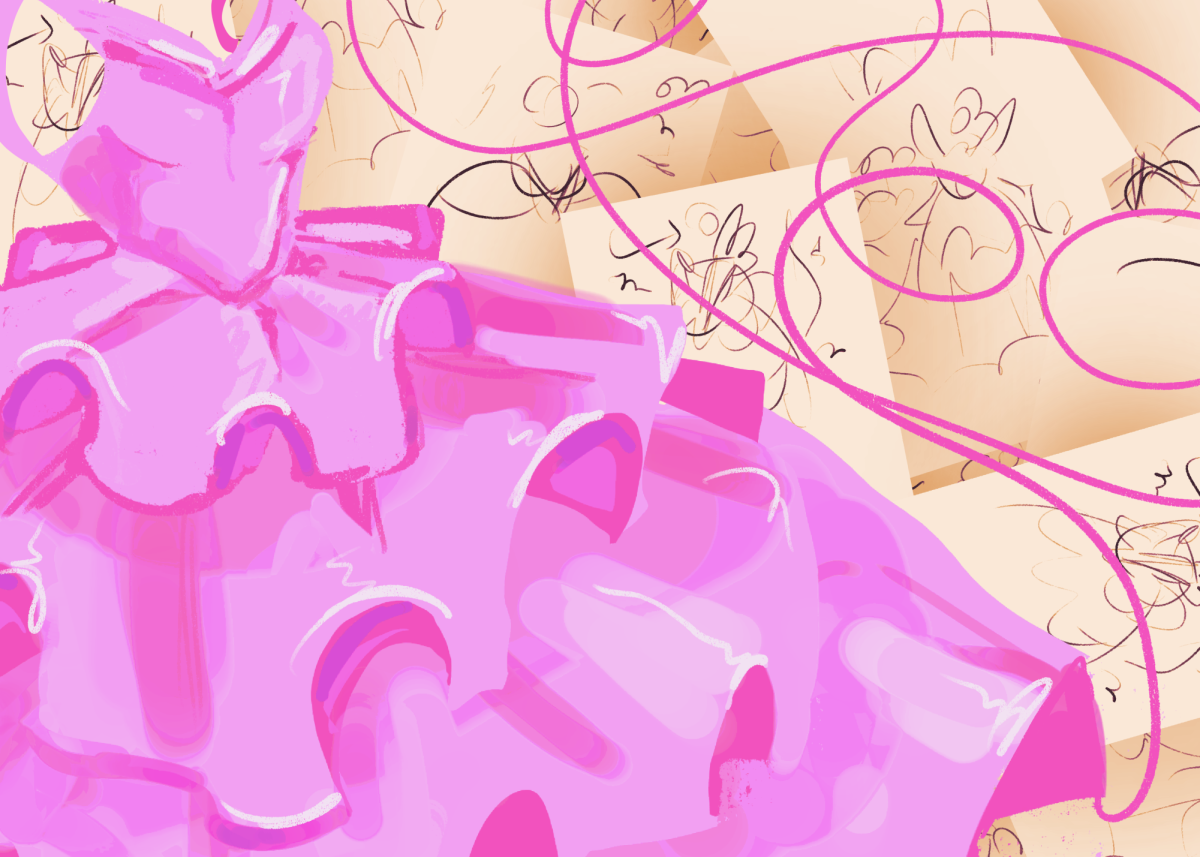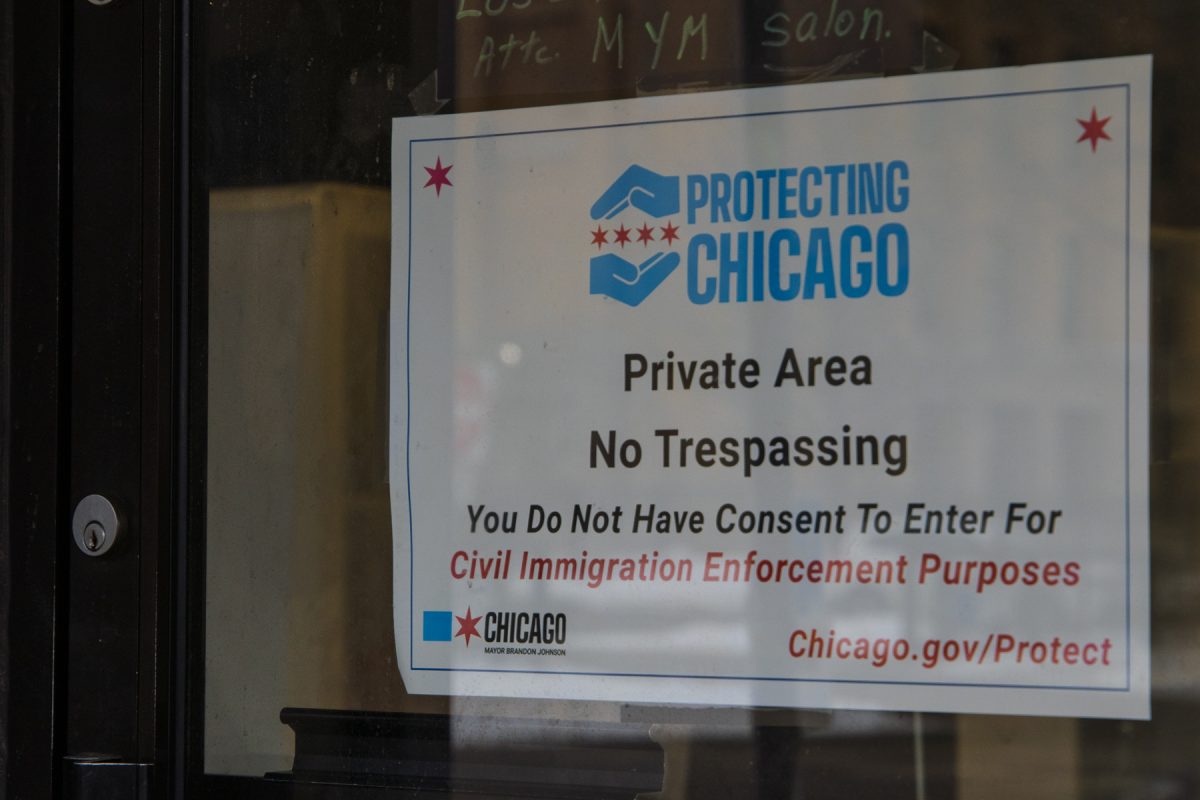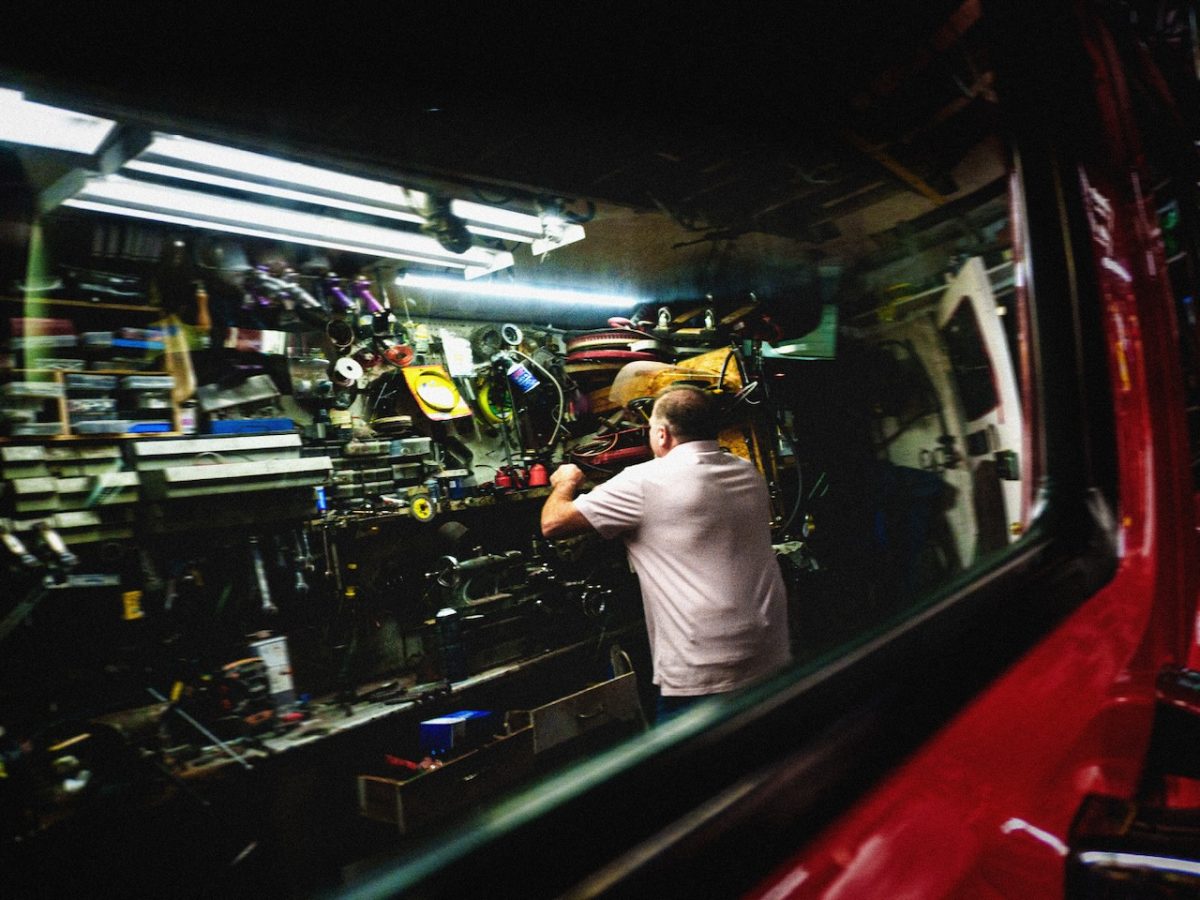Tens of thousands of demonstrators filled downtown Chicago streets on Saturday, June 14 as part of a coordinated national “No Kings” protest against the Trump administration’s planned military parade in Washington and a wave of federal immigration raids.
Organized by Indivisible Chicago and the 50501 Movement, the event began in Daley Plaza before winding through the Loop, drawing crowds with signs reading “No Human Is Illegal,” “Abolish ICE,” and “Americans Against Oligarchy.” The protest was one of more than 2,000 planned across the country in response to what organizers describe as increasingly authoritarian policies under President Donald Trump.
The demonstration came amid heightened political tensions nationwide. Authorities in Minnesota canceled all related events Saturday after a state representative was killed and another lawmaker injured in separate shootings at their homes that officials described as politically motivated. Flyers for the “No Kings” protest and a manifesto targeting politicians were found in the suspect’s car, prompting the Minnesota State Patrol to urge the public to avoid protests.
In Chicago, however, the event was peaceful. Protesters marched from Trump Tower to Ida B. Wells Drive, chanting, “No justice, no peace, no ICE in our streets,” and “Hey hey, ho ho, Donald Trump has got to go.”
According to Army estimates, the controversial military parade set for this weekend in Washington could cost taxpayers up to $45 million. It coincides with Trump’s 79th birthday.
Ella Bueno from the Little Village neighborhood, said she was protesting “basic human rights, which a lot of my people are being denied of.”
“I’m just tired. I know my community’s tired, I’m tired seeing my community suffer. We need to be out here speaking for those who can’t speak for themselves,” Bueno said.
In early June, federal agents detained at least 10 people in the South Loop after they were told to check into a monitoring program administered by the U.S. Immigration and Customs Enforcement.
ICE uses the monitoring program to track non-citizens who were previously detained and released while they await removal or Immigration proceedings.
Dorothy Valin from Skokie in suburban Chicago joined the protest to voice concern over what she described as sweeping threats to civil liberties — from immigrant due process to women’s reproductive rights, and from Social Security to Medicare and Medicaid.
“I wanna protest Trump. I think he’s way over reaching being a dictator. I think he’s way over reaching his powers and I think calling in the national guard, marines, it’s illegal and that we have to, in mass, protest that he’s going to get away with stuff. This is democracy,” Valin said.
Chris Novak, who lives in the Independence Park neighborhood on Chicago’s Northwest Side, said he joined the protest in opposition to the Trump administration’s leadership and appointments.
“It’s the whole administration — the choices they’ve made to fill key positions and all the nonsense they’ve brought to this country since Trump was elected, both the first time and now again,” Novak said.
South Loop resident Kristin Van Ausdal said she marched to stand up for immigrant rights, transgender protections and what she described as the core values of the country.
“It feels like a lot is happening that shouldn’t be happening,” she said. “And this is the least I can do.”
Claudia Boyle from Mount Prospect outside of Chicago said First Amendment protections are also under threat. “We can’t speak anymore,” Boyle said. “I feel like people are being punished for speaking out, and to me, that’s a tremendously dangerous road to go down.”
Chicago Mayor Brandon Johnson said in a statement ahead of the protest that the Chicago police officers would protect the people’s First Amendment rights of protestors today and beyond in response to Trump calling protestors in Los Angeles “animals” and “a foreign enemy” in a speech at Fort Bragg, North Carolina this week.
In other states, where “No Kings” protests were also planned, Republican leaders warned protesters against violent acts, even though organizers had called specifically for calm.
Texas Gov. Greg Abbott deployed more than 5,000 National Guard members and 2,000 state police.
At the protest in Chicago, police stood quietly watching the protesters. They directed marchers where to turn by blocking off roads with their bikes in order to separate the people in the street from incoming traffic.
Copy edited by Emma Jolly







